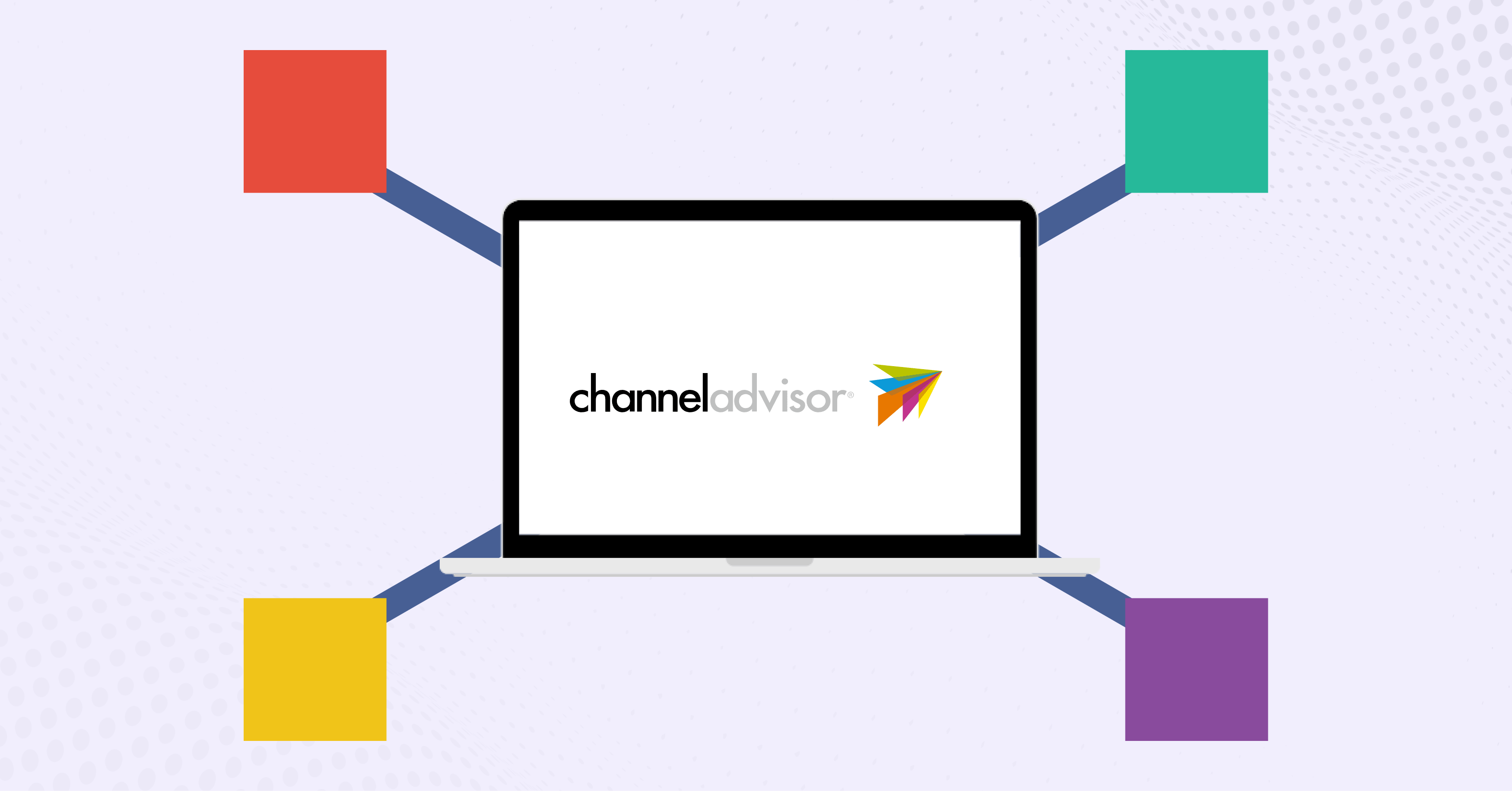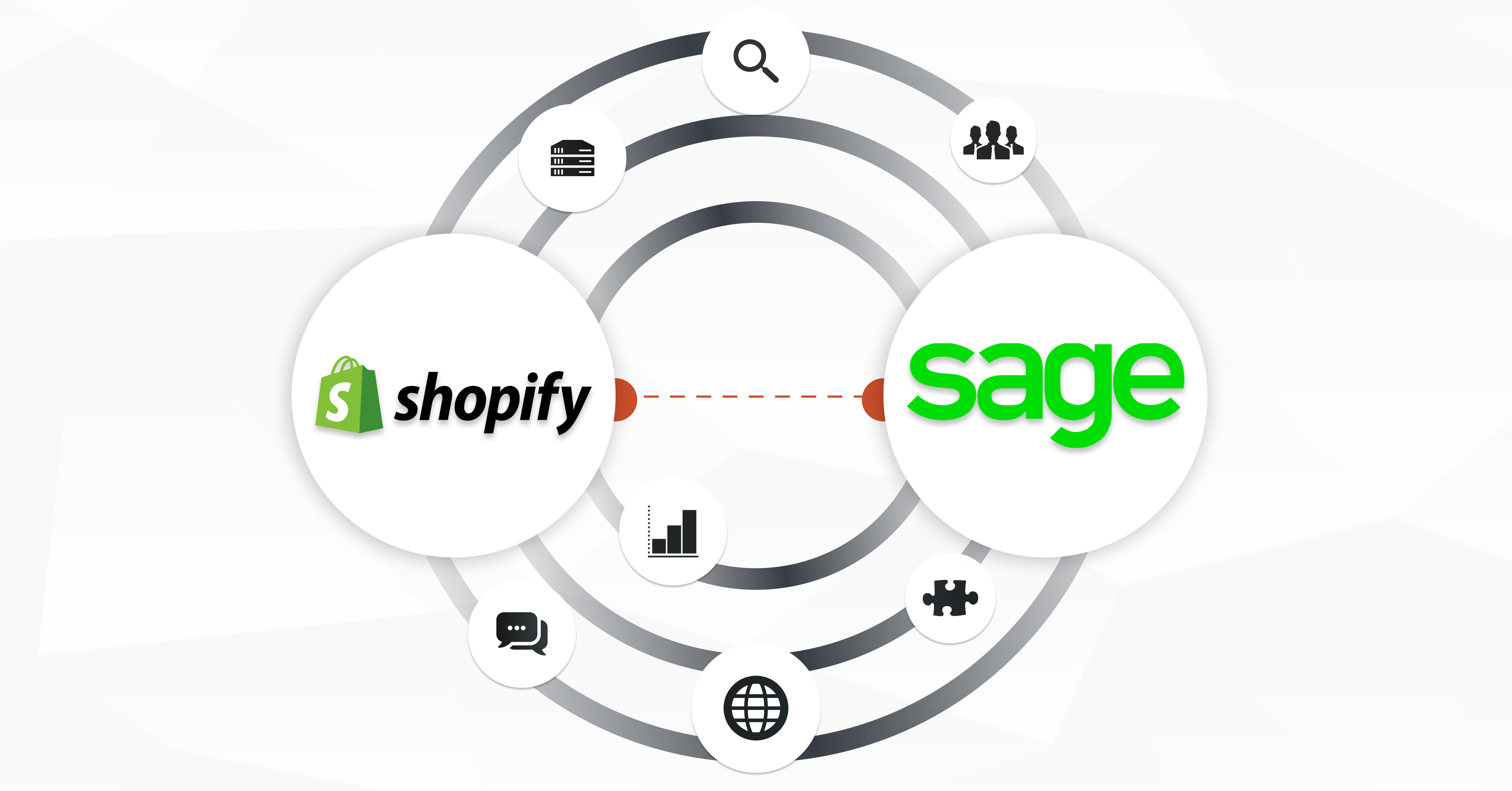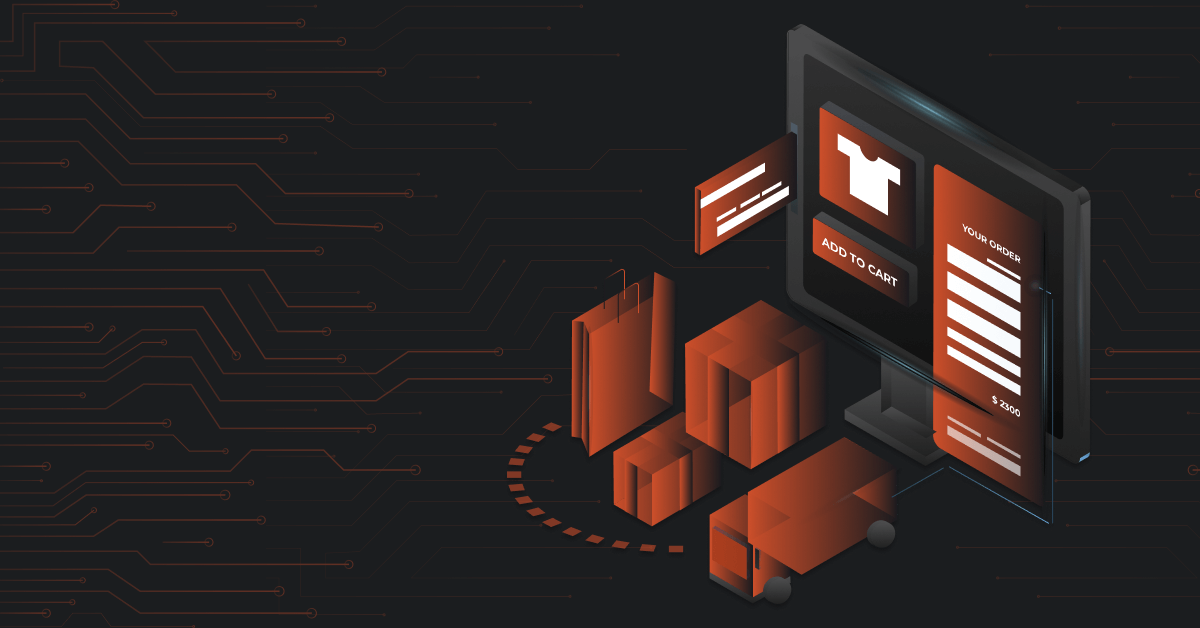eCommerce is revolutionizing the way modern consumers shop. Consumers are shopping across more channels than ever before. The worldwide COVID crisis of 2020 changed everything about how we live.
Many people worked from home, avoided shopping in crowded stores, and stayed inside their “bubble”, sometimes under strict lockdown orders from their governments. And eCommerce exploded, growing over 44% in the US alone in 2020. If history is any guide, the pandemic of 2020 will fade away. But the changes it has made to the way we do commerce are most likely permanent: But the changes it has made to the way we do commerce are most likely permanent: leading to the rise of technology and ecommerce solutions that help gain maximum efficiency for modern businesses.
Being a leading multichannel commerce platform, ChannelAdvisor is helping brands with a centralized means of managing different marketplaces, Direct-to-Consumer (D2C), first-party retail, and more.
Users have leveraged it to improve their online performance by expanding sales channels, connecting with consumers across the buying cycle, optimizing their operations for peak performance, and providing actionable analytics to improve competitiveness. ChannelAdvisor’s multichannel platform connects warehouse products with more of today’s consumers.
For sellers looking to scale and boost profitability, a ChannelAdvisor integration is a very viable next step. Here’s why (followed by how):
Contents
Why consider a ChannelAdvisor Integration?
The future of omnichannel fulfillment and selling emphasizes the need for speed, accuracy, and personalization. Integration is a key means of ensuring your business continues to offer the seamless experience your customers demand. Integrating your ChannelAdvisor account with your ERP comes with the following benefits:
Improves Functionality
The integration of an ERP software initiates the availability of real-time data to the storefront, allowing customers to view and access the information pertaining to the available inventory, and latest order status, and also tracking the shipments using the lot/serial or other tracking numbers. This helps in reducing the cost of operations and improving the customer experience with your storefront.
Reduces the Cost of Inventory
All the information about web sales appears in your ERP system promptly. Based on these web transactions, ERP item inventory will also be updated.
With up-to-date information about inventory and web sales, an ERP user can plan the purchase in a proper way, thus reducing inventory costs. Via integrating the ERP, one can initiate the updated sales information.
An ERP gives all web sales information and also timely updates about web transactions. The updated web sales information and inventory details allow you to forecast and properly plan the purchase, reducing the inventory operational cost.
Helps Generate Financial Reports
An e-commerce application can easily generate financial reports on sales. By integrating the ecommerce platform with the ERP, the end-user can move a step ahead, as ERP software provides a Balance Sheet, P/L Statement, Trial Balance, Cash Flow, etc., ensuring transparency regarding web transactions and financial information across the organization.
Financial reports of sales are generated by e-commerce applications. Integrating e-commerce with ERP, helps the business to produce a trial balance, balance sheet, cash flow, and P/L statement, which gives the required clarity in financial information.
Increases Productivity and Saves Time
The integrated ERP software streamlines multiple business processes, reducing human resources’ involvement in the business processes. The employees no longer have to manually input data from one platform to another (e.g. shipping info, inventory levels, product info).
Instead, communication takes place automatically. This saves time and money and also makes it so employees are free to be productive in other ways.
In addition, all the web sales orders will get integrated into the ERP system in a timely manner. Also, an ERP user can instantly track the order and start further processing. With ERP software integration, the order fulfillment cycle is reduced.
Reduces Data Redundancy and Errors
With the integration, all information like web customer details, web orders, payments & shipping information will be integrated to ERP software.
In addition, the Item and Inventory details can be uploaded from the ERP to the e-commerce portal, eliminating the need to re-enter the data. Thus, the integration reduces human involvement, data redundancy, and errors happening across the two different platforms.
Increases Customer Satisfaction
One can easily raise the level of customer satisfaction, via up-to-date and real-time product information, inventory availability details, order tracking details, etc. in e-commerce from the ERP software.
One can also automatically provide notifications when the shipment goes out, and thereby track the shipment along its journey. With real-time information, providence-like knowledge about what’s going on behind the scene adds value to the customer experience.
Even if trouble comes up (e.g. a delay or lack of stock) knowledge about the situation can minimize any dissatisfaction.
Additionally, it also makes life easier for existing customers who moved from traditional buying to online buying where contract pricing payments (installment payments ) are made possible along with offline order tracking.
Better Control of your Business
Integration of e-commerce and ERP business processes provides business owners the ability to manage the whole business process from one location. It also unifies the e-commerce system with inventory, manufacturing, CRM, financials, etc., improving communication between the internal departments.
Finally, if you make money online and offline, integration allows you to have one holistic picture of your sales.
These are some of the benefits of integration. Furthermore, to make it seamless, ERP and e-commerce platforms need a connector/middleware which can communicate between different APIs (Application Programming Interfaces). In simple terms, a connector can communicate the same language between the e-commerce platform and the ERP.
Integration Methods: Point-to-Point vs. Middleware
A good strategy forms the base for eCommerce ERP integration. You need to have a clear-cut idea well before even choosing the eCommerce platform. Frame a deep understanding of:
- Data flow
- Migration
- ERP integration strategy
- Steps for future growth
At this point comes your crucial choice for the most suited integration model.
Point-to-Point Integration Model
Also termed one-to-one integration, the point-to-point (P2P) model is the perfect choice for your business if you have just a few applications. The P2P model puts forth an easy model to connect one application to the other.
Best suited for simple integrations, it can be equally tedious to manage as the integrations increase in number. If you have more than three applications, then the P2P model may not be the best choice for you.
Middleware Integration Model
This involves middleware or a centralized software that is placed between two or more systems like your eCommerce platform, ERP, PIM, etc. With this model, a standard method comes into place that connects the entire network to a common system.
Thus, each application does not require separate connectors to link to each of the other connectors as is the case with the point-to-point integration model.
DCKAP Integrator is one such middleware. It is an ERP Integration platform built for distributors.
ChannelAdvisor Integration via DCKAP Integrator: A Case Study
In 2020, DCKAP Integrator helped one of its clients by integrating its Distribution One ERP with the BigCommerce website.
Recently, the same company was acquired by a firm that included ChannelAdvisor for their eCommerce business and reached out to DCKAP Integrator to integrate ChannelAdvisor with the existing Distribution One ERP. DCKAP Integrator built the integrations quickly and went live successfully with the project in the month of October 2022.
Appreciating our swift actions and seamless transition, the CEO of the Company extended his Appreciation in the G2 reviews portal.
The Results
Around 3,000 orders have been placed manually into ChannelAdvisor and also from various marketplaces as well. Taking up such huge volumes of orders in an ERP system involves a considerable amount of manual effort and is also prone to create chaos with the order’s line items or any other hassle.
Here comes the savior, as our DCKAP Integrator makes things easier. Here orders are pulled from the ChannelAdvisor on a 5-minute frequency using automated sync services and those orders are populated into the D1 ERP system. This involves no manual intervention and DCKAP Integrator paves an easy way of keeping track of the orders which get synced into the D1 ERP.
Moreover, maintaining inventories of 40,000+ product SKUs has always been a major burden. DCKAP Integrator has updated the inventories periodically from the ERP to ChannelAdvisor. Also, ChannelAdvisor allows the concepts of multipacks inventory distribution. If the main product’s inventory got updated, it automatically allocates the inventories to the other packs. This made the business much easier.
What more Integrations can be done?
DCKAP Integrator not only operates with the integration of ChannelAdvisor with the Distribution One ERP but also integrates with any other ERP systems, a CRM application, or any other platform as the DCKAP Integrator is a platform agnostic Cloud-based SaaS product.
As a result, DCKAP Integrator is well equipped and has readymade connectors set up for future integrations of ChannelAdvisor with any software platform involved in the manufacturing, retail, and distribution industries This proves that DCKAP Integrator is more erratic and does more supple stuff.
See what DCKAP Integrator can do for your business goals, starting with scheduling an expert consultation. Or check out the free trial right away.




